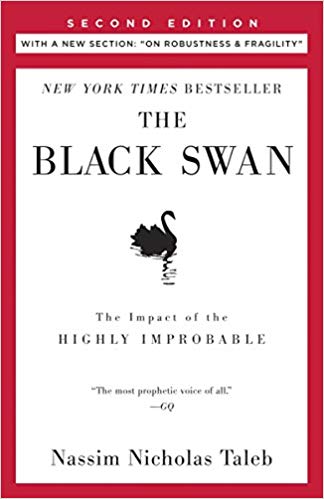

This article is an excerpt from the Shortform summary of "The Black Swan" by Nassim Taleb. Shortform has the world's best summaries of books you should be reading.
Like this article? Sign up for a free trial here .
What is the superstar effect? How does it work? Who does it benefit? How does it contribute to inequality?
The superstar effect is the tendency of the most talented people to benefit disproportionately from their talent. It was coined by economist Sherwin Rosen to describe the unequal distributions of income and prestige in Extremistan sectors like stand-up comedy, classical music, and research scholarship.
We’ll cover how the superstar effect works, where it accurately describes the world, and how it fails to take luck into account.
Unfairness in Extremistan and the Superstar Effect
As exemplified by figures like Beyoncé and Jeff Bezos, social and economic advantages accrue highly unequally in Extremistan.
One reason for this disparity is the “superstar effect.” Coined by economist Sherwin Rosen to describe the unequal distributions of income and prestige in Extremistan sectors like stand-up comedy, classical music, and research scholarship, the “superstar effect” operates when marginal differences in talent yield massive rewards.
The superstar effect, it’s vital to note, is meritocratic—that is, those with the most talent, even if they’re only slightly more talented than their competitors, get the spoils. What a theory like Rosen’s fails to take into account, however, is that all-important aspect of life in Extremistan: dumb luck.
Consider research scholarship for instance. Sociologist Robert K. Merton has observed that academics rarely read all the papers they cite; rather, they look at the bibliography of a paper they have read and pick sources to cite more or less at random.
Now imagine a scholar cites three authors at random. Then a second scholar cites those same three authors, because the first author cited them. Then a third does the same thing. Suddenly the three authors that have been cited are considered leaders in their field, all by dint of dumb luck. This is not explained by the superstar effect, since the superstar effect is based on talent, and this is a matter of luck.
Alternatives to the Superstar Effect
The phenomenon identified by Merton’s study has been called both “cumulative advantage” and “preferential attachment.” These concepts describe the innate human tendency to flock to past successes, regardless of whether those successes are the product of merit or chance.
Although cumulative advantage/preferential attachment provides a better account of unfairness than the superstar effect—because it accounts for randomness in the distribution of advantage/preference—it still isn’t a perfect theory of Extremistan unfairness. This is because, according to cumulative advantage/preferential attachment, winners stay on top. Once an entity—a company, an academic, a professional sports coach—reaches a certain level of success, cumulative advantage/preferential attachments holds that that entity will continue to be successful, because humans naturally favor past success. But this doesn’t reflect reality.
For example, according to cumulative advantage/preferential attachment, Apple will forever be the king of consumer electronics, and Google will forever own the Internet. But even a cursory knowledge of business history shows a belief like this to be misguided. Consider this: If you tracked the 500 largest U.S. companies from 1957 to 1997, you’d discover that only 74 lasted the full 40 years. Some ceased to exist by virtue of mergers, but most simply failed. In other words, even in Extremistan, giants can occasionally be toppled by dwarfs. This isn’t explained by the superstar effect or preferential attachment.
Nevertheless, despite the possibility of creative destruction, Extremistan is defined by extreme concentration—of prestige, income, capital, influence, size, or what have you. These concentrations create the appearance of stability—larger, more powerful entities are more resilient—but they actually create the potential for catastrophic black swans.
The example par excellence of the risks of concentration is the banking industry. The explosive growth and interrelation of the major global financial institutions were the catalysts for the Great Recession of 2008.
(Shortform note: The popularity of The Black Swan is due, in large part, to Taleb’s clairvoyance about the vulnerabilities of the financial industry. The book was published in April 2007, before the worst of the crisis, yet Taleb describes the contours of that crisis with eerie precision.)
The most far-reaching unfairness of Extremistan, however, more so than economic inequality, is inequality in intellectual influence. As illustrated by Merton’s citation example just above, intellectual influence can be a matter of dumb luck rather than ability or insightfulness. This problem becomes acute when we trust thought leaders—”experts”—with our lives and livelihoods. While the superstar effect would indicate that there’s not fairness and talent in who has influence, preferential attachment suggests otherwise.
———End of Preview———

Like what you just read? Read the rest of the world's best summary of "Black Swan" at Shortform . Learn the book's critical concepts in 20 minutes or less .
Here's what you'll find in our full Black Swan summary :
- Why world-changing events are unpredictable, and how to deal with them
- Why you can't trust experts, especially the confident ones
- The best investment strategy to take advantage of black swants






